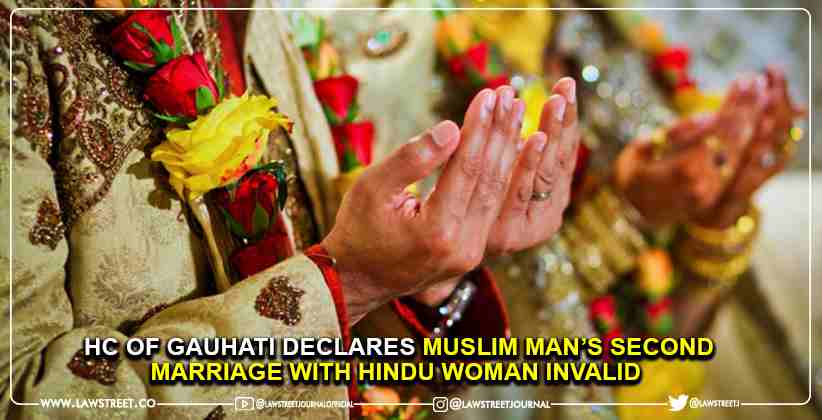The High Court of Gauhati in a recent case held that Special Marriage Act, 1954 does not provide any clause under which the second marriage of a Muslim man with a Hindu woman can be declared valid.
FACTS
Sahabuddin Ahmed who was an employee in the office of the Deputy Commissioner at the Kamrup District died in a road accident after which his second wife, Dipamani Kalita filed a case asking for the pension and other benefits. The petitioner is also the mother of a twelve-year-old son.
COURTS OBSERVATION
On 6th September 2021, Justice Kalyan Rai Surana highlighted that as per Section 4 of the Special Marriage Act, 1954 one of the conditions required for having a valid marriage under the Special Marriage Act is that neither of the parties should have a spouse at the time of marriage.
Furthermore, the court observed that at the time when the marriage between the appellant and her late husband was registered under the said act, Late Sahabuddins first marriage was not annulled which means that he had a spouse.
PRECEDENT
The Court also referred to the case of Md. Salim Ali versus Shamshudeen case, where it was held that under the Mohammedan law, marriage between an idol worshipper and a Muslim man is an irregular marriage as per Section 22 of the principles of Mohammedan law by Mulla (20th edition).
While deciding the present case the Court held that the petitioner did not get married under the Mohammedan law but under the Special Law Marriage Act, 1954 however that marriage is void as the parties did not meet the condition in Section 4 (a) of the Act.
The Court also held that there is no indication that the petitioner did not change her Hindu name or by any means try to change her religion as there is no record of the same.
PRESENT SCENARIO
The Court dismissed the writ petition stating that the marriage is void and hence the second wife would not be entitled to the pension, however, the Honorable Judge held that her minor son would be entitled to the share of pension and other benefits.








